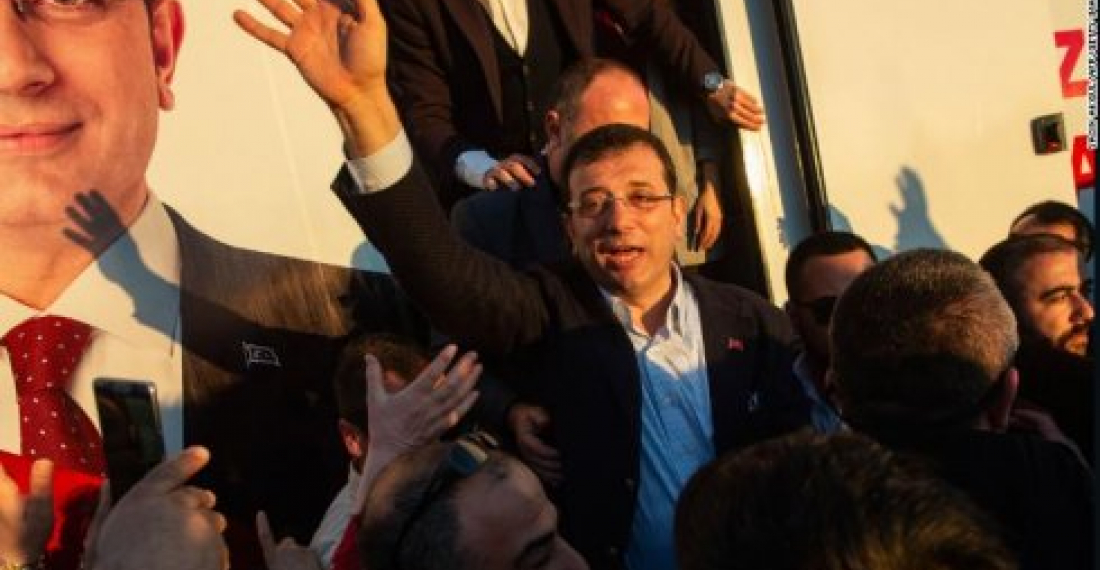The controversial decison of the Turkish Supreme Election Council to annul the election result from the 31 March municipal elections in Turkey's largest city, Istanbul, was the focus of a joint statement issued by the European Union High Representative, Federica Morgherini and Enlargement Commissioner, Johannes Hahn. The statement also criticised the decisions by the Council to declare elected mayors and members of municipal councils in Turkey's mainly Kuridish populated South-East, ineligible to assume office.
On Monday,the Elections Council announced that a re-run of the election in Istanbul will be held on June 23. In the ruling, the council accepted the objection presented by the ruling Justice and Development (AK) Party to the local election results in Istanbul with seven votes in favour and four against. Ekrem Imamoglu of the opposition CHP party, who had already assumed office as Mayor Of Istanbul, has had his mandate cancelled.
In a statement issued in Brussels on Monday (6 May), the EU said:
The Turkish Supreme Election Council decided to re-run elections in Istanbul following extraordinary appeals which contested the initially certified outcome of these elections. The justification for this far-reaching decision, taken in a highly politicised context, should be made available for public scrutiny without delay.
Ensuring a free, fair and transparent election process is essential to any democracy and is at the heart of the European Union's relations with Turkey. It is important that the Istanbul election boards can carry out their work in an independent, open and transparent manner, and in compliance with international election norms and standards to guarantee the full credibility of the election process. In this respect, we expect the Turkish authorities to extend their invitation to international observers, such as the Congress of Local and Regional Authorities of the Council of Europe, to observe the re-run elections.
The decisions by the Supreme Election Council to declare elected mayors and members of municipal councils ineligible to assume office in the south-east of Turkey - even though their candidacies had been checked and validated before the elections - and to give mayoral mandates to the candidates who got the second highest number of votes, go against the core aim of a democratic electoral process to ensure that the will of the people prevails. They also undermine the electoral process to which the Turkish people have shown their commitment by casting their votes in very large number as well as Turkey's commitments as member of the Council of Europe.
source: commonspace.eu
photo: Ekrem Imamoglu (archive picture)






